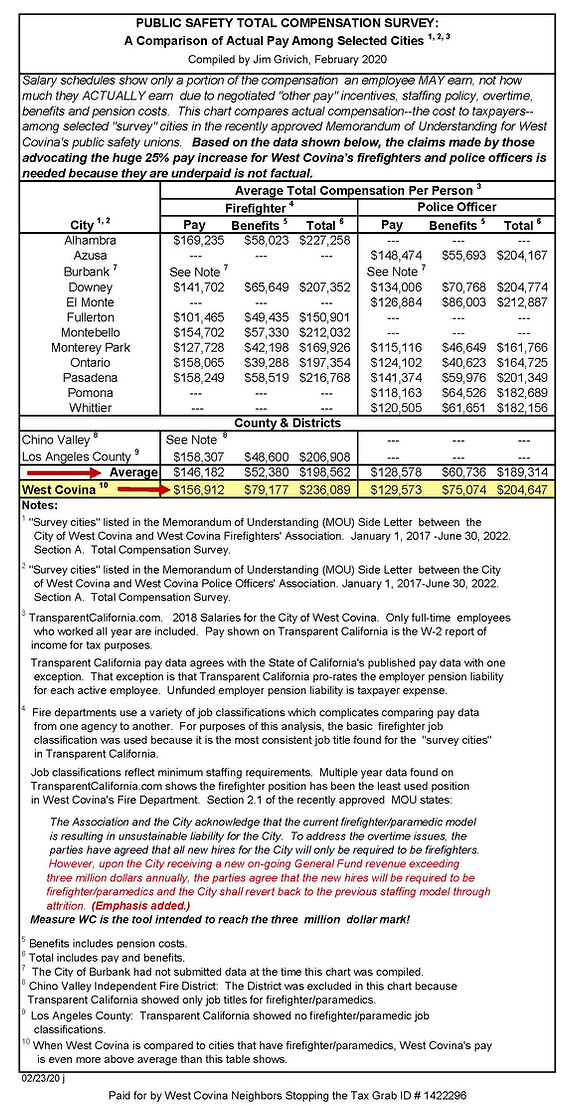Are West Covina firefighters and police officers underpaid?
Public sector agencies and private sector employers want to pay their employees fairly. That’s understandable. Employers want to retain good employees and recognize some employees will change organizations for better salary, bonus, paid time off, benefits that other employers may offer.
The Salary Survey
One of the tools employers use to determine if their salaries are competitive within their industry and region is a salary survey. An accurate salary survey collects pay and benefit data from similar sized employers in a geographic region for one or more job titles. Salary surveys are conducted by professional survey firms, individual employers, employee unions, as well as academic and policy researchers.
One of the first steps in conducting a salary survey is identifying the meaning of “salary.” For instance, does salary mean gross or net salary? Does the salary include salary ranges, pension benefits, incentives and bonuses, merit increases, medical benefits, paid time off, additional pay for educational or certificate requirements, and more. The survey data and methods used impacts the results.
Salary Schedule vs. Actual Compensation
Compensation involves more than just the pay and deductions shown on his or her paycheck.
-
Salary Schedule is the table showing the basic pay an employees may earn. The table typically has steps showing pay increases that occur. Five-steps are common.
-
Actual Compensation is what the employee is paid plus the variable salary components such as incentives, health and medical benefits, time off, pay for degrees and certificates, pensions. Overtime can also be a factor considered.
-
Pension Benefits are what an employee is paid after retirement. Employer retirement costs for an employee continue after retirement until the employee dies. In the case of police and fire employees, the cost to taxpayers is almost as much as regular pay since public safety employees retire earlier than other employees. Pension costs are also called the “unfunded liability.”
Now back to the original question—are West Covina’s firefighters and police officers underpaid?
The answer depends on the data used to make the comparison. The chart below uses actual salary data the City of West Covina reported to the State of California and Transparent California. The sponsors of Measure WC and city staff only used basic salary schedule data. Basic salary schedule data does not include the majority of actual compensation. Two different sets of data give different results.
